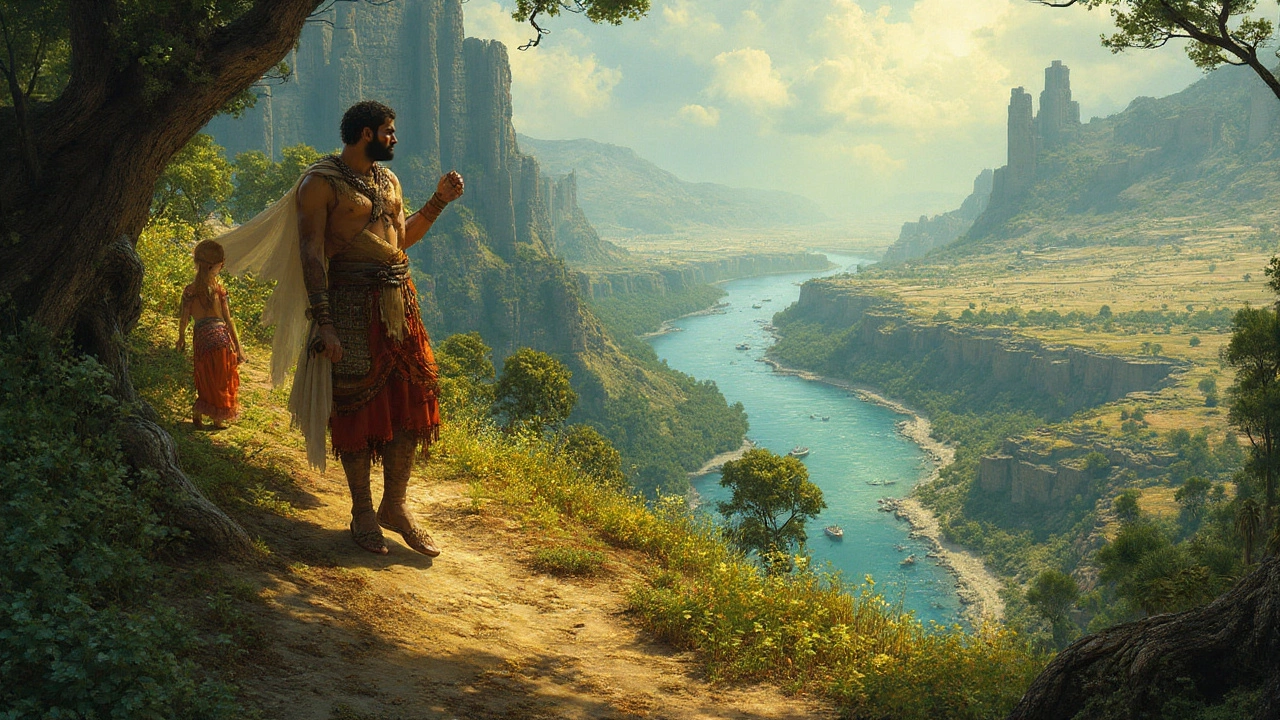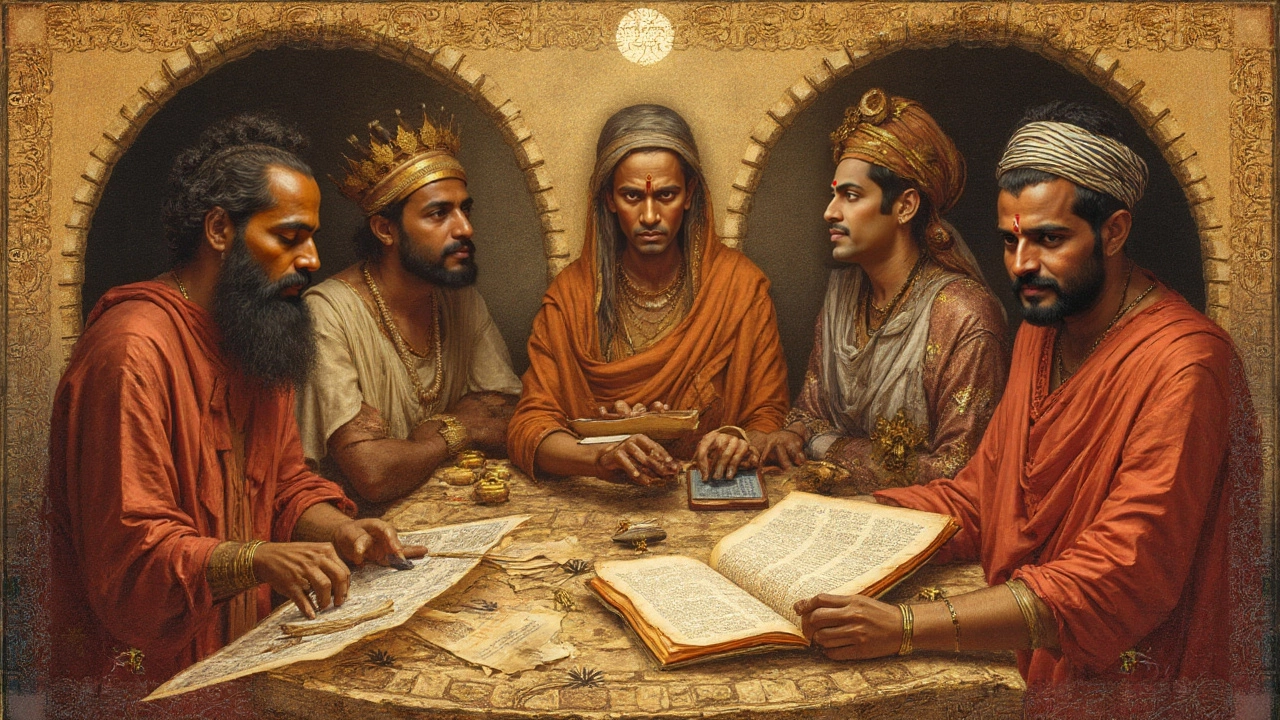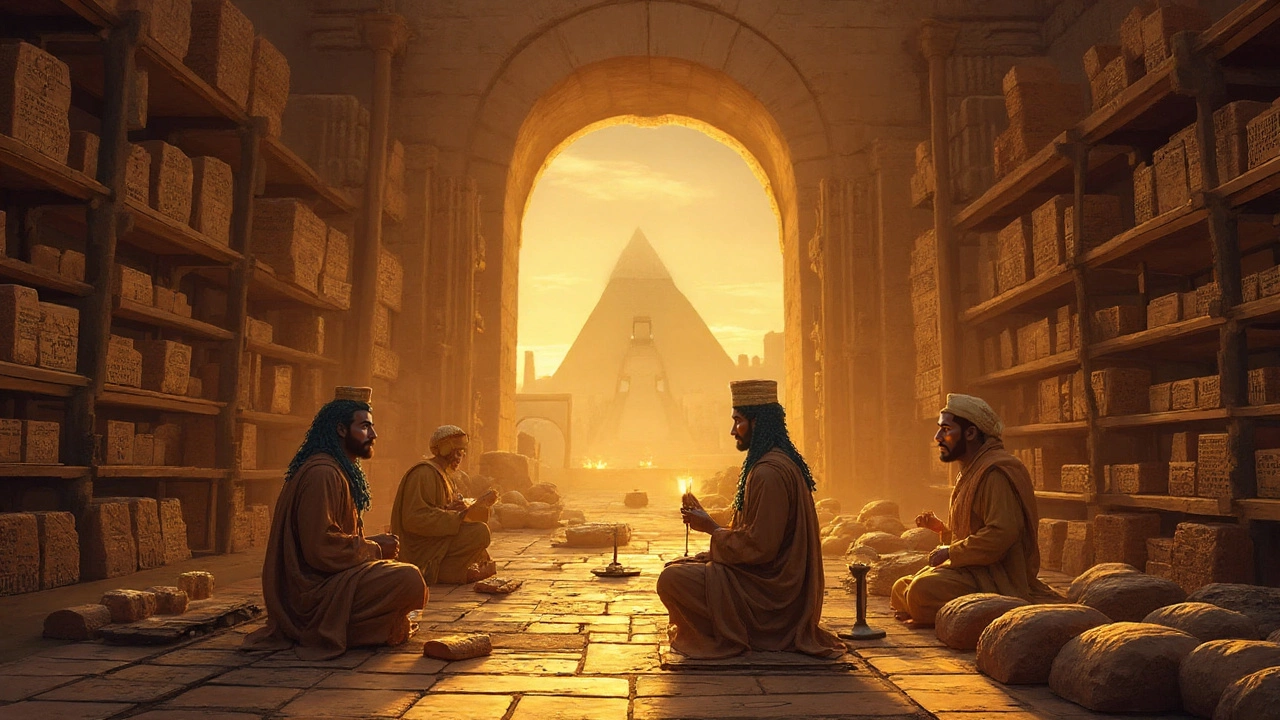Think about this for a second: before writing was everywhere, before Netflix scripts and even your grandma’s bedtime stories, humans were already spinning tales—some so epic, they survived thousands of years. But which poem goes all the way back to the start? What’s the oldest one we know? Most people are surprised to find that it isn’t Indian, Greek, or Egyptian. The honor goes to the Epic of Gilgamesh, scratched into clay over 4,000 years ago in ancient Mesopotamia. If ancient poetry sounds dry, hang tight—a king is about to jump off the tablet and shake up everything you know about stories, friendship, and what it means to be human. This ancient poem isn't just old; it's packed with drama, heartbreak, and even a quest for immortality. Some lines feel so fresh, you almost forget they were written on clay tablets in a language nobody speaks anymore. Ready for the real deal behind the world’s oldest poem?
Tracing the Roots: What Makes Gilgamesh the Oldest Known Poem?
To understand why the Epic of Gilgamesh stands above the rest, you’ve got to look at the evidence—and there's plenty. Written in cuneiform script on twelve clay tablets, this poem has been pieced together by archaeologists from scattered ruins in Iraq, mostly the old city of Nineveh. The story’s main bits date back to at least 2100 BCE, though the earliest bits may be older. There are older inscriptions and religious texts, but Gilgamesh is the first to mix adventure, emotions, gods, sex, death, friendship, and heartbreak—all the good stuff you expect from a classic story.
Gilgamesh himself was a real Sumerian king, ruling Uruk—one of the biggest cities of the ancient world—somewhere between 2800 and 2500 BCE. But the poem doesn’t just list his deeds; it tells a tale. He goes from arrogant to humble, makes friends with a wild man named Enkidu (who’s basically the original Tarzan), fights monsters, loses his friend, and searches for eternal life. These themes—mortality, friendship, legacy—still haunt us today. That’s the real magic behind Gilgamesh: it feels personal, timeless, and brutally honest for such an old work.
Now, some people ask about older poetry. The Egyptians had religious hymns and pyramid texts, and Indians had the Rigveda, which may date back as far as 1500 BCE. But so far, nothing beats the concrete evidence we have for Gilgamesh being first. If you want it in a nutshell: Gilgamesh is the earliest known narrative poem that we've found in full enough pieces to really read it as a story. Take a look at the numbers:
| Poem | Origin | Date | Language | Written Form |
|---|---|---|---|---|
| Epic of Gilgamesh | Mesopotamia (Sumer) | c. 2100 BCE | Akkadian (originally Sumerian) | Clay tablets (cuneiform) |
| Rigveda | Indian subcontinent | c. 1500 BCE | Sanskrit | Oral; written centuries later |
| Ancient Egyptian Pyramid Texts | Egypt | c. 2350-2100 BCE | Old Egyptian | Stone walls of pyramids |
| Enheduanna's Hymns | Mesopotamia (Akkad) | c. 2300 BCE | Sumerian | Clay tablets (cuneiform) |
See how Gilgamesh stands out as a fully fleshed narrative? Other texts are hymns, religious spells, or songs, often fragmentary. Gilgamesh reads like the world’s oldest adventure book. And believe it or not, this poem was “binge-read” in its day—scribes copied it for centuries, teaching future generations about grief, destiny, and what people hoped for thousands of years ago.

What is the Epic of Gilgamesh About? Plots, Themes, and Wild Facts
Gilgamesh, both a king and a troublemaker, starts his journey ruling over Uruk with an iron fist. He’s half god, half mortal, and completely bored. The gods, a bit tired of his antics, toss a new friend his way—Enkidu, a wild man raised with the animals. The two become inseparable after a wrestling match that’s basically ancient MMA. They fight the monster Humbaba in the Cedar Forest, slay the Bull of Heaven (sent by a snubbed goddess, Ishtar), and break all kinds of rules.
Everything shifts when Enkidu dies. Gilgamesh is crushed. Here’s where it gets real: He goes on a desperate quest to find Utnapishtim (basically the Sumerian Noah) to beg for immortality. Along the way, he faces scorpions, uncrossable mountains, and a bartender who tells him to just accept being human. He finds Utnapishtim and listens to the original flood story (yep, this version probably inspired later tales like Noah’s Ark). But Gilgamesh fails to win eternal life. Instead, he returns to Uruk wiser—he has to accept that humans die, but our works and memories can last.
Some wild facts? The flood myth here is the earliest known version, predating the Bible by centuries. The poem has other surprises: the first written tale of bromance, the earliest existential crisis, and the only clay tablet in history where a barmaid tells a king to stop chasing immortality and enjoy life. There’s also loads of poetry about cities, walls, deserts, storms, and even a plant that restores youth—though a snake eats it before Gilgamesh can use it. If you think ancient stories are just dusty preachings, this one’s got you covered. It’s even got its own monsters and drama.
Throughout, you’ll spot lines that still hit hard: “There is no permanence,” Gilgamesh learns. His grief feels all too familiar, and so does his hope that stories and achievements will make him live on. For an adventure written four millennia ago, it’s powerful stuff. Talk about a poem that refuses to die.

Ancient Poetry’s Impact: Why It Sticks With Us and What We Can Learn
You might wonder, why dig up old poems? Because these poems spark our whole tradition of storytelling. Gilgamesh set the format for later epics—think Homer’s Iliad and Odyssey, India’s Mahabharata, and even modern movies about heroes. The themes it tackled never went away. Friendship, death, fate, and legacy are everywhere—from Bollywood blockbusters to personal Instagram posts about grief and hope. People have been facing these exact feelings for thousands of years, and poetry bridged that gap, making sense of life’s toughest problems.
The way Gilgamesh’s story was kept alive is a tip for anyone who wants their works (or memories) to last. People today still copy, translate, and adapt it. The story has been discovered, lost, and found again—multiple times. In 1853, British explorer Hormuzd Rassam found the first full text buried in Nineveh’s library, sparking a worldwide “Gilgamesh fever” among historians. And the work hasn’t stopped appearing in new places: translations now range from Japanese to French, Hindi to Quechua.
If you’re in the mood to dig deeper, here are some practical tips and facts about exploring ancient poetry:
- Start with translations: Gilgamesh has loads available—Stephen Mitchell’s and Andrew George’s are readable and full of background notes.
- Consider the context: Early poetry was performed aloud. Try reading a section out loud and see how the rhythm feels. That’s how people used to hear it.
- Look for connections: Ancient Indian, Persian, and Greek poetry picked up ideas from Gilgamesh. Watch for familiar characters or themes—heroic journeys, friendship, tragic loss.
- Search museums online: The British Museum, Louvre, and Iraqi National Museum have digital artifacts, including tablets from Gilgamesh. You can see the actual script!
- If history feels distant, remember this: almost every modern epic borrows a bit of its structure, voice, or theme from the world’s first written poem. Even memes about "leaving a legacy" echo Gilgamesh’s journey.
Finally, here’s a cool stat: Gilgamesh’s tablets, first made around 2100 BCE, have been translated into over 20 languages and are required reading at over 120 universities today. Ancient poetry might seem like it belongs in a museum, but it’s more alive—and more relatable—than you’d guess. The oldest known poem is the one that keeps coming back, refusing to settle quietly in the past. It’s proof that, long before TikTok and tweets, humans found powerful ways to speak to each other—and some things are just too good to forget.
